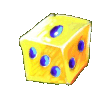
Rudyard Kipling described one of the most popular scout games in his novel "Kim".
The game is called also "Kim" - as the name of the main character in this novel - a small boy who had to be a spy - and it teaches us how to be more perceptive.
The rules are easy:
after having a good look at hte things lying on the ground, you should notice which of them disappeared, when everything was mixed, when nobody looked at it.
When I reflected, I came to the conclusion that instead of describing the game - it's better ro represent the rule of making games. In the same way as I did it while I was describing diffenrent kinds of survival. Some elements (equipment, time of duration, place, participants) will be recurred.
Now we should take into account everything to create a game:
Sometimes we can create something like that example.
| TYPE OF THE GAME |
|---|
| high-speed |
| aqility |
| quality |
| logical |
| of fate |
| multifight |
|
| TIME OF DURATION |
|---|
| short - f.e. 1 hour |
| middle short - f.e. a half of day |
| long - f.e. - a day |
| a few days |
| once |
| repeated |
|
| KIND OF ENDING |
|---|
| when the time will finish game |
| when sb. will finish this as a first |
| when everybody will finish this game |
| when the first person drops out |
| when everybody drops out, but the last participant |
| who will have the best time |
| who will have the best realization |
|
| PARTICIPANTS |
|---|
| a mini group (up to 3 persons) |
| a small group (up to 8 persons) |
| a big group (up to 12 persons) |
| 2-3 groups |
| many groups |
| the same groups in respect of numbers or quality |
| different groups in respect of numbers or quality |
|
| PLACE |
|---|
| forest - the lowland |
| forest - the mountainous ground |
| marshy ground |
| waters |
| mountains |
| caves |
| cities |
|
| EQUIPMENT |
|---|
| without equipment |
| a piece of paper and a pencil |
| a stop-watch |
| a full personal equipment |
| a specialistic equipment |
|
